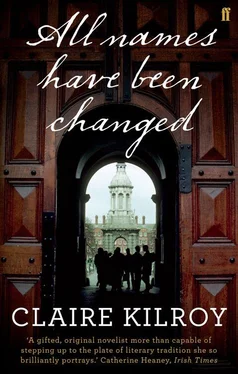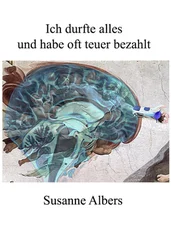Claire Kilroy - All Names Have Been Changed
Здесь есть возможность читать онлайн «Claire Kilroy - All Names Have Been Changed» весь текст электронной книги совершенно бесплатно (целиком полную версию без сокращений). В некоторых случаях можно слушать аудио, скачать через торрент в формате fb2 и присутствует краткое содержание. Год выпуска: 2010, Издательство: Faber & Faber, Жанр: Современная проза, на английском языке. Описание произведения, (предисловие) а так же отзывы посетителей доступны на портале библиотеки ЛибКат.
- Название:All Names Have Been Changed
- Автор:
- Издательство:Faber & Faber
- Жанр:
- Год:2010
- ISBN:нет данных
- Рейтинг книги:5 / 5. Голосов: 1
-
Избранное:Добавить в избранное
- Отзывы:
-
Ваша оценка:
- 100
- 1
- 2
- 3
- 4
- 5
All Names Have Been Changed: краткое содержание, описание и аннотация
Предлагаем к чтению аннотацию, описание, краткое содержание или предисловие (зависит от того, что написал сам автор книги «All Names Have Been Changed»). Если вы не нашли необходимую информацию о книге — напишите в комментариях, мы постараемся отыскать её.
All Names Have Been Changed — читать онлайн бесплатно полную книгу (весь текст) целиком
Ниже представлен текст книги, разбитый по страницам. Система сохранения места последней прочитанной страницы, позволяет с удобством читать онлайн бесплатно книгу «All Names Have Been Changed», без необходимости каждый раз заново искать на чём Вы остановились. Поставьте закладку, и сможете в любой момент перейти на страницу, на которой закончили чтение.
Интервал:
Закладка:
Most disquieting of all were the faded traces of genteel living, lingering ghostlike in the details: the incomplete ceiling roses, the crumbling stuccowork, the chipped marble mantelpieces and shattered fanlights. Everywhere, ruined proportions; windows bricked up or knocked through, kitchenettes shoved in hall corners, toilets plumbed into reception rooms. Those unloved rooms pleaded with me to do something, do something, to speak on their behalf, or at least not to close the door again. I picked my way around, observing their condition without comment, mindful to touch nothing, as if they were plague victims or war casualties in a field hospital and my role was solely to count them, to compile an inventory of the condemned and the dead. The relief I experienced upon coming back out to fresh air fell far short of adequate.
*
The flat on Mountjoy Square, in the heart of Gardiner’s Dublin, became available late in the day for reasons that were never specified. It was Aisling, with her great fondness for the macabre, who planted the idea in my head that the previous tenant had dropped dead in it. Suicide, most likely, she reckoned. I followed the haunches of an Offaly man with a beer gut straining the buttons of his tea-coloured shirt as he laboured up the stairs. Up three flights to the top floor he led me, jangling his ring of keys as offhandedly as a jailer, pausing on each landing to catch his breath, all the time profaning softly. ‘Mother of God,’ he sighed. ‘Merciful hour. All the angels and saints.’
The room was clean, bright, plain. A single bed, desk and chair, two-bar electrical heater. The landlord placed his hands on his kidneys and surveyed the room as if seeing it for the first time. ‘Snug,’ he noted with approval. ‘Central location, own sink.’
‘Take your time,’ he added before retiring to lean out the landing window for a smoke.
In gradient, it recalled that rickety bedroom in Arles that Van Gogh had painted a hundred years earlier, except that his floor sloped upward, not down. It was the shipshape bareness that most appealed to me, as if everything was nailed to the ground. The simple, practical sturdiness of its contents, the sense of things being orderly and under control, was as satisfactory to me as a tightened belt. I could picture myself bent over the stout desk scribbling past midnight, ripping pages from notebooks and firing crumpled balls into the corner. Such were my notions of the writing life. God knows where I got them. Not from Glynn. Can’t blame him for that. Out I went to the landing.
‘I’ll take it,’ I told the landlord, pulling out my roll of money. He flicked his cigarette out the window and tossed his head in a manner intended to convey approbation, but which somehow seemed more like a scoff.
*
I transported my belongings from the temporary student dormitory accommodation to Mountjoy Square that same afternoon. It took just two crossings. All I had were the few changes of clothes and, of course, my books. Local children overtook me on the street hauling tyres and furniture. A convoy of five carried an upended three-piece suite on their heads, ants raiding a picnic. Smaller kids, six-year-olds, lagged behind dragging the matching cushions. They were dismantling the city at a ferocious rate. Unlit bonfires loomed up from every patch of open ground, squat and totemic, some of them already fifteen feet high though Halloween wasn’t for weeks.
I moved the desk in my new room from the corner to the window. Van Gogh’s window glowed with Provençal sunlight. Mine gave onto a concrete yard jammed with decades’ worth of household detritus: paint cans, ironing boards, a rusting cooker, half a bike. Nothing the local children could burn. A buddleia sprouted from the boundary wall, its flowers brown and curling. To the rear of the yard, a back lane ran the length of the terrace, joining up with Fitzgibbon Street and the flats. The rhythmic ticking sound which had promised during the viewing to be a grandfather clock turned out to be a dripping tap. The toilet and shower stall were located downstairs.
I unpacked my reference texts, my foolscap pads, my pens, and laid them out on the windowsill like a set of surgical instruments. The Irish Times had printed a large black and white photograph of Glynn in his study when he won the Prix Médicis étranger, the first Irishman to have done so and, to date, the last. I was no more than nine or ten when I saw that image, but it stayed with me all those years. Glynn was seated at a leather-topped desk by a bay window, illuminated by a soft shaft of sunlight. Behind him, a great black wall of books breathed down the back of his neck. On the desk was a sheaf of papers to which he applied a silver pen which just so happened to catch the light as the camera shutter clicked, his tiny glinting sceptre.
How ferociously Glynn scowled in that photograph, as if he were engaged in the bloodiest act of creative engendering conceivable, though it is unlikely that he could have been writing anything much, really, not with that photographer buzzing about the room like a fly. The murderous frown must have been at the intrusion. ‘Leave me alone,’ he was scrawling across his papers, by the looks of it. ‘Go away, feck off, get out.’ Oh, to be there, not in Glynn’s study, but any study, to be any writer in any study, to break through to that fictive space, the factory floor of the imagination. If there was a secret door leading to it, a revolving bookcase, a sliding panel, it had so far proved beyond my ability to locate it. I had tried, God knows I had tried, to find it by myself. Glynn would show us how to get there. Glynn, of all people, would know.
5 What’s another year?
I never once saw the interior of Trinity in high summer, it has only now occurred to me. Never set foot within those collegiate walls outside of the academic calendar, despite having lived in Dublin for years, and despite the campus obstructing everything. Perhaps it was for this reason that Trinity never fully seemed part of the city to me but was instead an intermittent phenomenon, seasonal as a winter lake.
The clatter and blare of Dame Street died away as I emerged from the darkness of Front Arch onto the broad cobbled expanse of the quad. It was an impressive vista. Front Square and its environs possessed the tranquil air of a monastic cloister — an unsettling trait, depending on how you felt about ghosts. Trinity was built on lands confiscated from the suppressed Augustinian Monastery of All Hallows which had occupied the grounds since the twelfth century. The newest construction, the Graduates Memorial Building, was almost a hundred years old, and the oldest (not one of the original Elizabethan structures had survived) was The Rubrics, dating from 1700. The sole evidence of the twentieth century was the student body itself, and even they seemed relics of a time past, so aloof, so reserved was their demeanour. I was half an hour early.
I knocked on the front door of House Eight and pushed it open when I got no response. A notice was taped to the wall. ‘Writing workshop top floor,’ it read. Not Glynn’s handwriting. Each door I passed on the way up the wooden stairs was shut, no trace of activity audible on the other side.
The workshop was not at all as anticipated. I’d expected floor-to-ceiling bookcases, as if books would propagate more books, words might self-seed. I’d hoped to step into that photograph of Glynn in his study, I suppose, but there were no bookcases, not even a shelf. The walls were bare as an egg. Plastic chairs and melamine tables were set out on the floor, no better than a staff canteen. A heavier table with side drawers was situated at the top. I placed my foolscap pad on a desk in the middle and glanced up at the clock on the wall. Thirty-three minutes to twelve. The clock was running late.
Читать дальшеИнтервал:
Закладка:
Похожие книги на «All Names Have Been Changed»
Представляем Вашему вниманию похожие книги на «All Names Have Been Changed» списком для выбора. Мы отобрали схожую по названию и смыслу литературу в надежде предоставить читателям больше вариантов отыскать новые, интересные, ещё непрочитанные произведения.
Обсуждение, отзывы о книге «All Names Have Been Changed» и просто собственные мнения читателей. Оставьте ваши комментарии, напишите, что Вы думаете о произведении, его смысле или главных героях. Укажите что конкретно понравилось, а что нет, и почему Вы так считаете.












